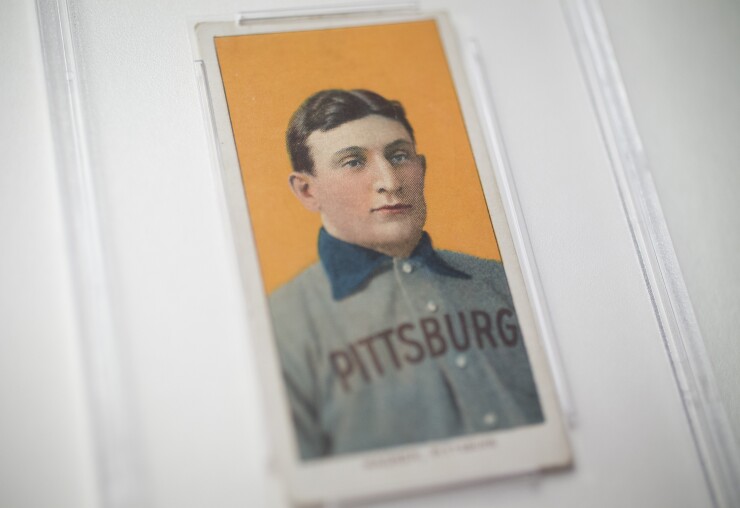Financial advisors with clients who have extensive or potentially valuable collections —
While they are much different from
The planning strategies for collectibles start with the same basic query as for art: Is this a valuable asset? If the client can definitively — and verifiably — answer "yes," then their advisor can help them through how to plan for the
"With any collectible, no matter what it is, the only way you make money is by finding someone who's more excited about it than you are, and that's the challenge when you have these types of items," Craig DuVarney, the founder of Acton, Massachusetts-based
READ MORE:
DuVarney and other planners point to companies that can assign a grade to the collectibles' condition and resources such as the prices that items have sold for on eBay, Amazon or other online marketplaces — rather than simply looking at their listed prices.
While clients are not likely to possess a highly valued collectible simply based on statistical probability, hobbyists in, say, trading cards can cite some price tags that would attract anyone's attention. In 2022, the famous "T-206" Honus Wagner card sold
Despite those eye-popping prices, collectibles represent "highly illiquid" assets that are "really volatile" based on timing, according to Jack Elder, the senior vice president of advanced markets with Shakopee, Minnesota-based wealth management firm
To address the illiquid, volatile nature of collectible assets and the possible estate taxes coming due nine months after their owner's death, life insurance that is "liquid at the time you need it" could provide their beneficiaries with a wider window to consider their options rather than finding themselves "in a situation where you're selling them at an inopportune time," Elder said.
"The family may still want to and choose to sell whatever collectibles they have, but at least they're not in a fire-sale situation," he said. "They're not going to be emotionally attached to their life insurance proceeds, but they might be emotionally attached to their Jackie Robinson card."
READ MORE:
As a retired former player with the New York Yankees and the Oakland A's, planner Kevin Thompson of Fort Worth, Texas-based
Since the value of collectibles revolves so much around "what someone's willing to pay for it," Thompson said he recommends that hobbyists give their heirs a detailed explanation of their assets and designate a specific beneficiary for the items in their last will and testament.
"I would say take care of that for them," he said. "You're giving it to a person who has no idea what this actually is."
DuVarney agreed that "getting as much knowledge from that parent as possible" about any collection they have is important for clients, since "you don't want to lose that knowledge when the person has passed away," he said. The clients should also take into account the time of taking on the project themselves when liquidating the assets or the expense of hiring an outside specialty company.
Marketing, packaging, shipping and, yes, insuring against any potential damage in the process of selling an item can extract a toll in dollars and hours, DuVarney said. Dealing with the collection may not rank with the myriad other issues that come up after the death of a loved one.

One of DuVarney's clients recently sold their late father's collection of metal toys through auctions and antique dealers, he noted. DuVarney's father maintains a collection of radios from the 1940s that DuVarney said he's not attached to "whatsoever," and the planner and his wife have "come to the realization that our kids don't care about our stuff," he said. Some market research could serve as an aide to advisors in discussing collectibles with clients.
"The emotional connection is what drives the market, and the next generation doesn't many times have that same connection," DuVarney said. "You have people who are not realistic about the value of their asset. And that's where searching eBay history becomes valuable. If you're not seeing a lot of items sold, or they're not selling for the value that you thought they were worth, how do you argue with that? … You can ask anybody to pay whatever you want for it. The question is whether anybody's going to buy. The free market is going to speak."
READ MORE:
Whether the clients collect trading cards, cars, jewelry or any other item, advisors can assist them in considering their future course of action. If there is a scenario in which one beneficiary does express particular interest in keeping the collection in the family, the insurance might provide a way to "equalize the wealth" passed down by the estate at death, Elder noted.
Collectibles are a "small market" that is "growing for sure" but doesn't much resemble stocks in the S&P 500 or real estate assets, he said.
"It's still a niche market," Elder said. "It's still highly volatile, and it's not a great way to transfer wealth. So you've got to have a source of liquidity around it."






